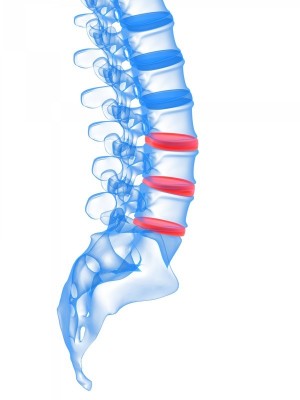PROGRAMS
WE CARE REHAB
My Story.
My Program.
OUR SPECIAL PROGRAMS
Balance Disorders/Fall Risk
Spinal Re-Conditioning Program
Target: persons with unresolved pain and work function problems with subacute injury status.
The purpose is to assist patients who have not had adequate resolution of pain from acute back injury and who have limited confidence or physical tolerance to begin a full, intense work conditioning program. The program, inclusive of progress testing and reporting, is used as trial to determine the motivation and probability of success in a full work conditioning program.
The treatment, upon progression, becomes a full conditioning program and include these various components:
- Therapeutic pain/ dysfunction relief procedure
- Graduated aerobic and strengthening exercise
- Back School education
- Home program instruction
- Stretching
- Work analysis/ planning
Work Conditioning Program
Target: sub-acute upper and lower back injured patients with history of repeated back trauma.
This intense work conditioning program is three to four weeks in duration. It is aimed at persons who demonstrate deficits in physical testing that contribute to repeated injuries and whose current injury is stable. The purpose is to build the individual’s physical capacity for functional return to specific or proposed employmen and the focus is function and not pain. The program is progressively intense in expected effort and duration, with the overall goal to overcome residual physical dysfunction.
Each week, in order to remain in the program, the individual must be able to demonstrate measurable progress in overcoming his/ her physical limitations to work. The program is monitored and supervised by physical therapists and exercise counselors.
The treatment, upon progression, becomes a full conditioning program and include
these various components:
- Joint and soft tissue stretching in clinic and home
- Lifting -strength training
- Demonstrated and applied body mechanics training
- Work position training
- Work capacity testing/ training
- Back School training
“Return to Work” Physical Capacity Assessment
Target: Strength testing is used to help the physician determine the employee’s work
fitness ability and/ or need for further medical care.
Strength testing is a dynamic job-specific strength test used to determine worker’s safe ability necessary to resume lifting tasks. Force graphs on a 3 trial test verify consistency of effort or complaints. Work simulated strength test (Strength Print TM) provides the employer with accurate, dynamic strength assessment to help employer determine level of injury risk in placing perspective employees in given job demands.
The test is job specific! An Ergonomist will come to the company and personally review the work demands and develop an accurate test based on given job demands. This service protects the employer by providing a signed pre-determined work demand that is on record with the company and the clinic.
Strength testing is now being used by hundreds of companies in the Bay Area. It has proven an effective aide in hiring the most physically qualified workers and guiding the physician who conducts company physicals to better assess a workers performance capacity
Target Groups:
- Employees who have been on medical leave and have obtained a medical release from their treating physician.
- Employees who have sustained a work related injury and are nearing readiness to resume full work
Pre-Placement Physical Capacity
Work simulated strength test (Strength Print TM) provides the employer with accurate, dynamic strength assessment to help employer determine level of injury risk in placing perspective employees in given job demands.
The test is job specific! An Ergonomist will come to the company and personally review the work demands and develop an accurate test based on given job demands. This service protects the employer by providing a signed pre-determined work demand that is on record with the company and the clinic.
Strength testing is now being used by hundreds of companies in the Bay Area. It has proven an effective aide in hiring the most physically qualified workers and guiding the physician who conducts company physicals to better assess a workers performance capacity
Target Groups:
- Workers who must lift over 50 lbs. occasionally and over 30 lbs frequently
- Workers in production areas involving walking, sorting, constant, and frequent lifting.
Functional Capacity Assessment
The Functional capacity Assessment (FCA) is a nationally recognized standardized test which assists in the determination of return to work status. The FCA objectively measures physical and functional abilities, and can provide safe limits for work activities such as lifting, bending, or carrying, as well as a means for monitoring
work levels. The FCA also provides objective data to establish the employee’s physical and functional level prior to vocational rehabilitation, thereby decreasing the risk of inappropriate rehabilitation referrals.
The frequency of functional activities and lifting capacities are based on standards provided by the National Institute for Occupational Safety and Health (NIOSH) and the Work Practice Guide for Manual Lifting (U.S. Department of Commerce, National Technical Information Service).
Functional limitations fall into three categories: (1) deconditioning limitations, (2) body mechanics limitations, and (3) possible structural limitations. These categories are defined as follows:
1. Deconditioning Limitations:
2. Body mechanics Limitations
3. Possible Structural Limitations:
These Tests Determine:
- current work level physical capacity
- consistency of subjects performance
- nature and degree of functional impairment
- the direction, extent and potential benefit of further physical rehabilitiation.
- the need for additional diagnostics
Strength Training
Mobility




